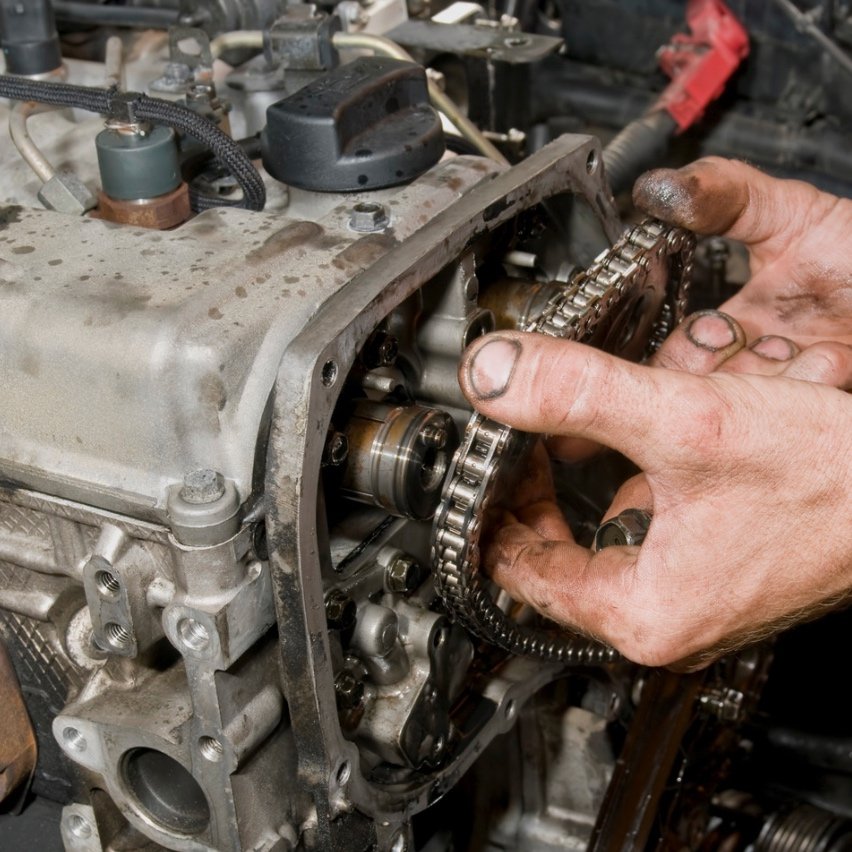The Benefits of Using Synthetic Oil in Diesel Engines
Diesel engines, known for their power and durability, benefit greatly from synthetic oils' superior performance.
Synthetic oil has become popular among diesel engine owners due to its multiple advantages over conventional oils. Diesel engines, known for their power and durability, benefit greatly from synthetic oils' superior performance. Understanding these benefits can help make informed decisions about engine maintenance, particularly when working with a diesel repair specialist or a local repair service.
Enhanced Engine Protection
One of the primary advantages of synthetic oil in diesel engines is its enhanced protection. Synthetic oils are planned to provide superior lubrication, reducing engine components' friction. This reduction in friction helps prevent wear and tear, prolonging the engine's life. The chemical structure of synthetic oils allows them to keep their viscosity across a wide range of temperatures, providing consistent protection whether the engine is running hot or cold.
In contrast, conventional oils can break down more quickly under extreme conditions, decreasing their protective qualities. Synthetic oils resist oxidation and thermal breakdown, which are common issues in high-performance diesel engines. For those seeking to maximize engine longevity and efficiency, consulting with a local repair service about switching to synthetic oil can be beneficial.
Improved Fuel Efficiency
Another significant benefit of synthetic oil is its contribution to improved fuel efficiency. Synthetic oils' advanced formula reduces engine drag by maintaining optimal viscosity, allowing the engine to run more smoothly. This reduced internal friction means the engine requires less energy to operate, translating to better fuel economy.
Diesel engines, already known for their fuel efficiency, can further benefit from synthetic oil. This improvement not only helps reduce fuel costs but also contributes to lower emissions, making it a more environmentally friendly option. For those focused on optimizing their vehicle's performance, discussing synthetic oil options with a diesel repair specialist is advisable.
Superior Performance in Extreme Conditions
Diesel engines are often subjected to harsh operating conditions, whether in commercial vehicles, heavy machinery, or long-haul trucks. Synthetic oils are specifically designed to perform well in extreme temperatures and under heavy loads. Their stability at high temperatures helps prevent oil thinning, which can compromise engine protection and performance. Additionally, synthetic oils flow more easily at low temperatures, providing better cold-start protection, which is critical in preventing engine wear during startup.
Conventional oils may struggle to provide the same level of protection and performance in such demanding conditions. Synthetic oil ensures that the engine remains protected, even when operating under the most challenging circumstances. Switching to synthetic oil can make a significant difference in performance and reliability for vehicles used in severe climates or for heavy-duty applications.
Extended Oil Change Intervals
One of the synthetic oil's practical advantages is the potential for extended oil change intervals. Synthetic oils are more resistant to breakdown and contamination, meaning they can last longer between oil changes compared to conventional oils. This prolonged lifespan not only reduces the frequency of oil changes but also decreases overall maintenance costs.
For those managing a fleet of diesel-powered vehicles, the reduced need for routine maintenance can result in significant savings over time. However, it is essential to consult with a local repair expert to determine the appropriate oil change interval based on the specific operating conditions and usage of the vehicles.
Enhanced Engine Cleanliness
Synthetic oils also contribute to maintaining a cleaner engine by stopping the formation of sludge and deposits. Advanced detergents and additives in synthetic oil help keep engine components clean by breaking down contaminants and preventing them from accumulating. Cleaner engines run more efficiently and are less prone to issues such as overheating or poor performance.
Conventional oils are more likely to leave deposits and sludge, particularly in older engines or those subjected to heavy use. Switching to synthetic oil can lead to a noticeable improvement in engine cleanliness and overall performance. Discussing the benefits of synthetic oil with a diesel repair professional can help you make an informed decision that supports engine health and longevity.
Environmental Benefits
Using synthetic oil in diesel engines also offers environmental benefits. Synthetic oils improve fuel efficiency, resulting in lower carbon emissions. Additionally, extended oil change intervals mean less oil waste, reducing the environmental impact of oil disposal.
As environmental concerns continue to grow, choosing synthetic oil represents a responsible choice for those looking to reduce their carbon footprint. This can also be a positive step toward sustainability and corporate responsibility for businesses that rely on diesel-powered vehicles.
Working with a local repair service to transition to synthetic oil can be a seamless process that enhances diesel engines' performance and environmental profile.
In summary, synthetic oil offers numerous benefits for diesel engines, including enhanced protection, improved fuel efficiency, superior performance in extreme conditions, extended oil change intervals, enhanced engine cleanliness, and environmental advantages. For those looking to optimize their diesel engines' performance and longevity, consulting with a diesel repair specialist about the switch to synthetic oil is a wise decision. Whether for individual vehicles or a commercial fleet, the investment in synthetic oil can yield significant returns in both performance and cost savings.
KTS Enterprise in Phoenix offers comprehensive mobile fleet truck repairs catering to client needs, from preventative service to major repairs. We offer mobile and in-shop repair, lube and oil changes, annual dot and bit inspections, check engine and dash lights, suspension repairs, drivetrain repairs, and tire solutions.

